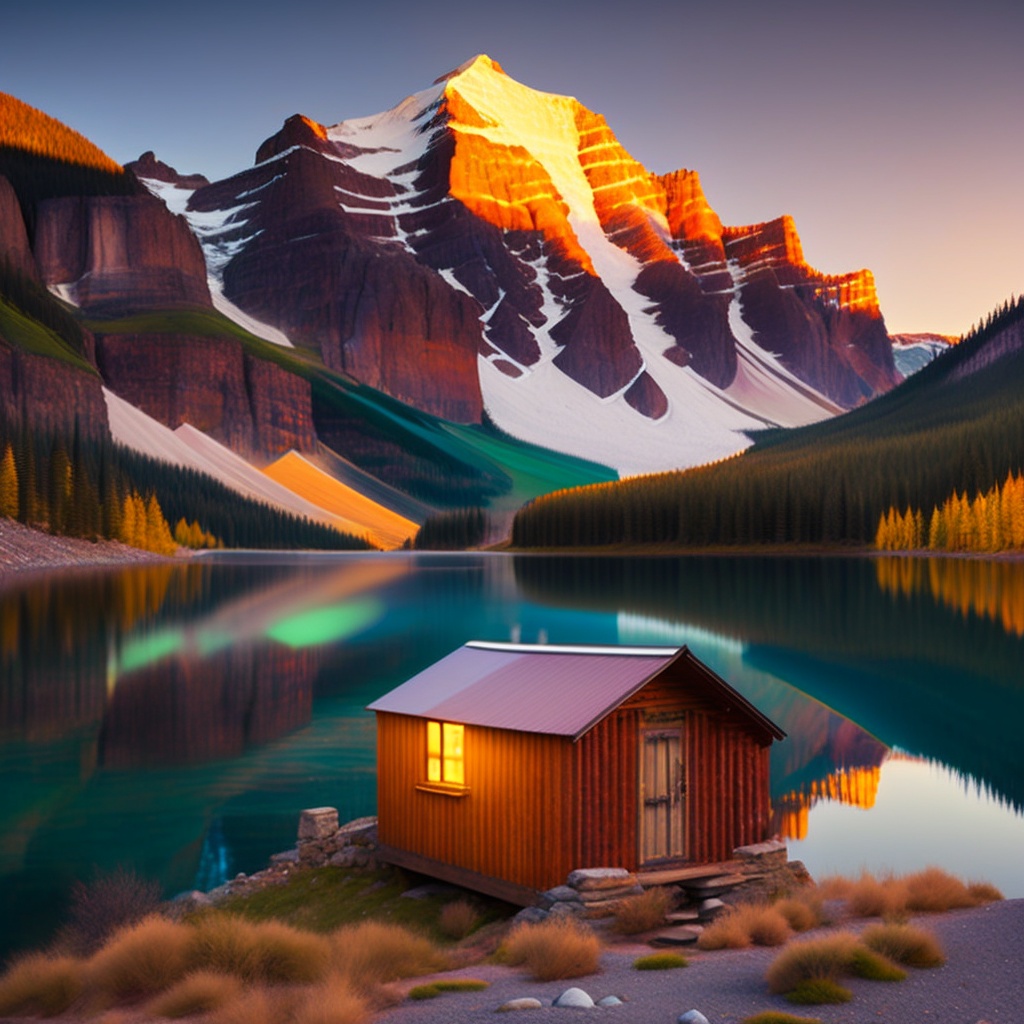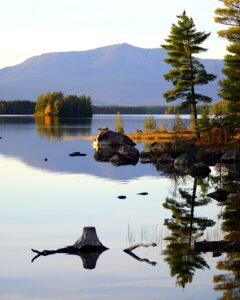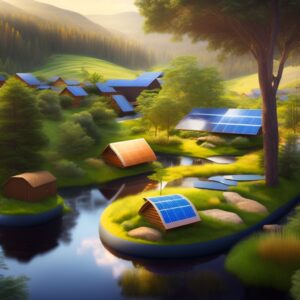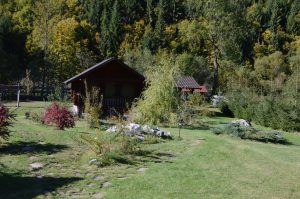How to Live Off the Grid: Introduction
Let me guess, the hustle and bustle of the modern world has you yearning for simplicity and independence? Or it’s the allure of a reduced carbon footprint, living sustainably and harmoniously with Mother Nature? Whether it’s the thrill of rugged individualism or the charm of sustainable living, going off the grid is a dream for many. But where to start? Well, my friend, you’re in luck. This article will be your North Star guiding you through the ins and outs of how to live off the grid. Let’s dive right in!
Understanding Off-Grid Living
What Does Living Off the Grid Mean?
Off-grid living is an exciting adventure about disconnecting from public utilities to lead a self-sufficient life. It’s not about running away to become a hermit in the mountains (though that’s an option!). It’s about self-reliance, embracing sustainable practices, and cutting the metaphorical umbilical cord that ties you to the energy grid. Imagine no more pesky power bills or worrying about the water supply being cut off!
Why Choose Off-Grid Living?
Off-grid living is a lifestyle switch that could make a Robinson Crusoe out of you. But why go off-grid? Well, the reasons are as varied as the people who choose it. It could be the lure of freedom, the appeal of being close to nature, or the satisfaction of building a self-sufficient life. It could be the desire to lessen one’s environmental impact or a challenge to see if you can do it. You might even want to escape from the 9-5 routine and embrace the novelty of living by the rhythms of nature. Or it’s the simple pleasure of sipping a coffee brewed with sunshine or cooking a meal with vegetables grown in your backyard.
Preparing for Off-Grid Living
Essential Skills to Acquire
Before you plunge into off-grid living, you’ll need a few essential skills under your belt. This isn’t about becoming an overnight Bear Grylls but more about picking up practical skills to make off-grid living a smooth sail.
Carpentry
Off-grid living might require you to become a jack of all trades, and carpentry is an essential skill. It will help build and maintain your sustainable home or even construct chicken coops or goat sheds. It’s time to get friendly with hammers, nails, and timber!
Plumbing
Knowing your way around basic plumbing is a must. Whether setting up a rainwater collection system, maintaining a septic tank, or dealing with a leaky faucet, plumbing skills will save your day (and keep your house dry and clean!).
Wilderness Survival
Wilderness survival skills can be a boon in an off-grid life. From identifying edible wild plants to knowing basic first aid, wilderness survival skills can make your transition to the wild side safer and more enjoyable.
Planning Your Off-Grid Home
You’ve decided to go off the grid. Great! Now, it’s time to plan your off-grid, self sustaining home. It’s not just about choosing a picturesque location; you’ll need to think about the practicalities of sustainable housing, energy generation, and water and waste management.
Finding the Right Location
Location, location, location. It’s not just a mantra for real estate agents. When going off-grid, you want a place with ample sunlight for solar power, possibly a water source for hydroelectric power, and fertile land for your vegetable garden. Think about the climate, resource access, and local laws and regulations regarding off-grid living. And remember, you’ll be spending a lot of time here, so pick a place that captures your heart!
Sustainable Housing Options
When choosing your off-grid abode, the sky is the limit! You could go for an earthy cob house, a trendy tiny house, or even a yurt. The aim is to build an energy-efficient home that uses local or recycled materials and fits into your off-grid lifestyle. You want a house that works with nature, not against it. It’s not just a shelter; it’s a part of your off-grid ecosystem.
Budgeting for Your Off-Grid Home
Off-grid living can be a significant financial investment upfront. You’ll need to consider the cost of land, building a sustainable house, setting up energy generation and water collection systems, and stocking up on necessary supplies. But remember, while the initial investment might be high, the long-term savings and benefits make it worthwhile.
Generating Your Own Energy
Congratulations! You’ve chosen a location and planned your off-grid home. Now, let’s talk about the lifeblood of your off-grid lifestyle – energy.
Solar Energy
Harness the power of the sun with solar panels. It’s a clean, renewable energy source that requires minimal maintenance. And nothing beats the feeling of baking a batch of cookies with sunshine!
Wind Energy
If your location is breezy, wind turbines can be a fantastic way to generate power. It’s time to embrace the wind, not just for flying kites, but for lighting up your home!
Hydro Energy
Suppose you’re lucky enough to have a stream or river running through your property. In that case, small-scale hydroelectric power can provide a reliable, year-round energy source. You’ll be making power while the water flows!
Managing Water and Waste
Water and waste management are key to your off-grid life. You’ll need to set up systems for collecting and storing water and dealing with household waste in an environmentally friendly manner.
Water Collection and Storage
Rainwater harvesting is a common method for water collection among off-gridders. You’ll need to install a catchment system, like gutters and rain barrels, and a filtration system for drinking water. A well or natural spring can be a reliable backup for those drier days.
Waste Management Solutions
Living off-grid requires you to handle your waste responsibly. Your new best friends will be composting toilets, worm farms, and recycling practices. Remember, in off-grid living, waste isn’t just waste; it’s a resource waiting to be used!
How to Live Off the Grid: Living Off the Land
Growing Your Own Food
Living off the grid means living off the land and growing your own food. It’s not just about the romantic vision of tending your garden; it’s about sustainability and self-reliance.
Planting a Vegetable Garden
Start with a vegetable patch. You don’t need a green thumb, just a willingness to get your hands dirty. Start small with easy crops like lettuce or tomatoes, and as you gain confidence, expand your garden. It’s not just about food; it’s about the joy of watching life sprout from a seed you planted.
Foraging for Food
Foraging is another excellent way to supplement your diet. Berries, mushrooms, nuts, and various herbs can be found in the wild – just make sure you know what you’re picking!
Raising Livestock
When you’re off the grid, chickens aren’t just cute farm animals; they’re your breakfast providers! Goats can offer milk, and bees provide honey. Remember, raising livestock isn’t just about the food; it’s about respecting and caring for the animals that sustain you.
Connecting with the Off-Grid Community
Off-grid doesn’t mean off-people. There’s a vibrant community out there, ready to lend a hand or swap tales around a campfire. They’re the best neighbors – they respect your space but will be there when you need them.
Overcoming the Challenges of Off-Grid Living
Physical Challenges
Living off the grid can be physically demanding. You’re not just living on the land; you’re working it. You’ll be doing everything from chopping firewood to tending your garden. But remember, every drop of sweat is a testament to your self-reliance and strength!
Psychological Challenges
Off-grid living can also pose psychological challenges. The solitude can be overwhelming, and the lifestyle can be a radical departure from what you’re used to. But the peace and tranquility, the connection with nature, and the satisfaction of building a life with your own hands make it all worthwhile.
How to Live Off the Grid: Conclusion
Living off the grid is a lifestyle that beckons to those with a pioneering spirit and a deep-seated desire to break free from the confines of conventional living. As you’ve navigated this comprehensive guide, you’ve embarked on a journey that promises challenges, rewards, and a profound connection to the world around you.
Embracing off-grid living is not a decision made lightly. It’s a path that demands unwavering resilience, dedication, and an indomitable spirit. It requires you to redefine your relationship with the environment, to harness the forces of nature for sustenance and energy, and to chart your course far from the well-worn roads of urban existence. It’s a life that challenges the status quo and invites you to craft your own narrative—one that’s steeped in self-sufficiency and sustainability.
In the world of off-grid living, every day is an adventure waiting to unfold. It’s a life where the rising sun signifies not only the start of a new day but the renewal of your commitment to harnessing solar energy for power. It’s a life where the sound of rustling leaves in the wind reminds you of the potential energy source just outside your window—a wind turbine awaiting activation. It’s a life where the gentle murmur of a nearby stream is not just a soothing backdrop but a source of hydropower waiting to be tapped.
As you embark on your off-grid journey, you’ll become intimately acquainted with the ebb and flow of the seasons, the dance of the constellations in the night sky, and the subtle rhythms of the natural world. You’ll develop a keen sense of self-reliance, honing skills in agriculture, energy management, and resource conservation.
Yet, it’s important to acknowledge that off-grid living is not without its challenges. The physical demands of self-sufficiency can be taxing, and the allure of modern conveniences may occasionally beckon. There may be moments of isolation, but these are often balanced by the sense of serenity and connection to the Earth.
In the grand tapestry of life, off-grid living is a bold and vibrant thread—one that refuses to conform to the ordinary. It’s a life where your every action, from collecting rainwater to tending to a vegetable garden, is a testament to your commitment to sustainability.
So, as you consider this path, remember that off-grid living is not a retreat from modern life; it’s a step forward into a future where you are not merely a consumer of resources but a steward of the Earth. It’s a future where challenges are met with ingenuity, where rewards are reaped in the form of profound connection and a life lived in harmony with the world around you.
In the end, living off the grid isn’t just a lifestyle; it’s a philosophy—a testament to the resilience of the human spirit and the enduring quest for a more sustainable and self-sufficient existence. It’s an invitation to embrace the challenges, savor the rewards, and embark on an adventure where every day is a new page in the story of your life, authored by your own hands and lived on your own terms.
How to Live Off the Grid: FAQs
Is living off the grid legal? Yes, but the legality of off-grid living varies by location. It’s crucial to conduct thorough research and always check local regulations and zoning laws before embarking on an off-grid lifestyle.
How much does it cost to live off the grid? The initial setup cost for off-grid living can be substantial, primarily due to investments in renewable energy systems and self-sufficiency infrastructure. However, ongoing costs are typically lower than those associated with traditional urban living. Reduced utility bills and the potential for self-sustained food production can offset initial expenses.
Can I use the internet off the grid? Yes, it’s possible to have internet access while living off the grid. Satellite internet, in particular, is a viable option for many off-gridders. It provides remote areas with reliable internet connectivity, enabling communication, work, and online research.
How do off-gridders handle healthcare? Off-gridders often adopt a proactive approach to healthcare, emphasizing prevention and wellness. Basic first aid skills are valuable, and having a well-stocked first-aid kit is essential. Additionally, some off-gridders may opt for telemedicine services, allowing them to consult with healthcare professionals remotely in case of non-emergency medical concerns.
What’s the most challenging part of living off the grid? The most challenging aspect of off-grid living can vary from person to person. However, common challenges include the physical labor required for self-sufficiency, the adjustment to a lifestyle with fewer modern conveniences, and the occasional sense of isolation or limited social interaction. Off-grid living is a deeply personal journey, and the challenges faced can be unique to each individual and their specific circumstances.





Pingback: Off Grid Wind Turbine: Harness the Power of Wind - Eco Life Wise
Pingback: Off Grid Air Conditioner: A Green Solution to Beat the Heat - Eco Life Wise
Pingback: Building Off the Grid: A Guide to a Self-Sustained Lifestyle
Pingback: Off Grid Solar System: A Step Toward Self Sufficiency
Pingback: Self Sustaining Homes: A Definitive Guide to the Exciting Future
Pingback: Living Off the Grid Communities: 10 Practical Steps
Pingback: Composting For Beginners Review: 10 Handy Tips | Eco Life Wise